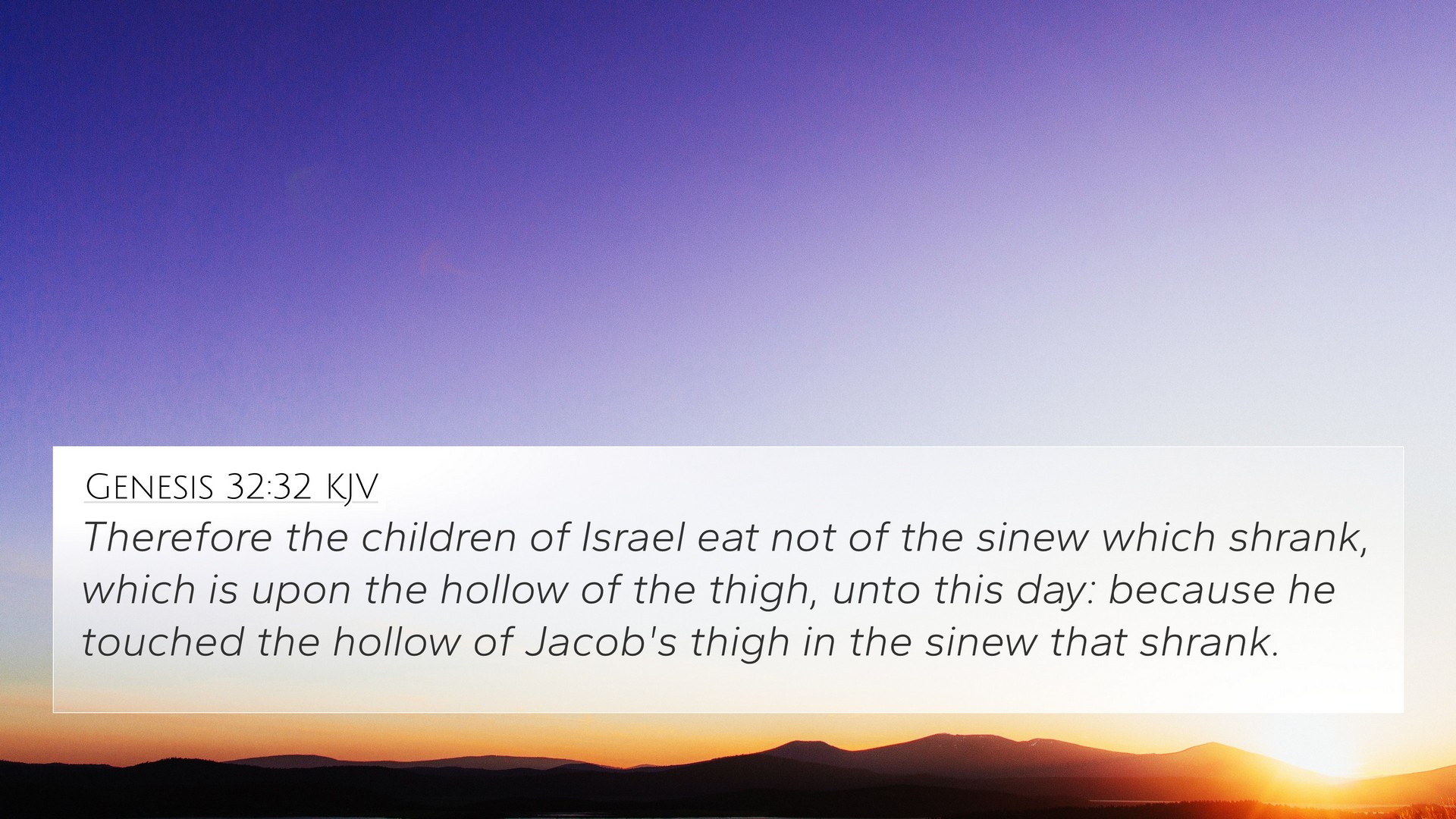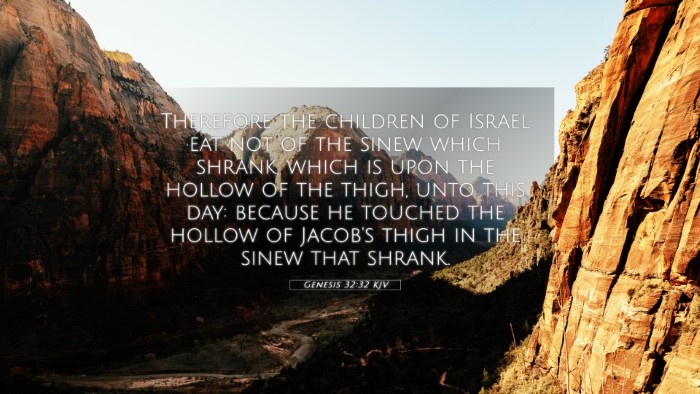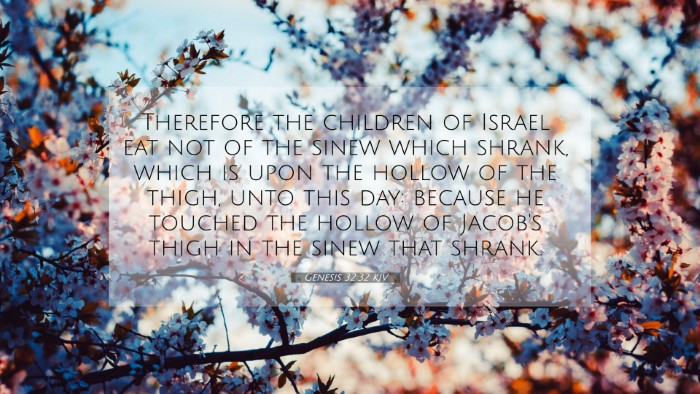Understanding Genesis 32:32
Verse: "Therefore the children of Israel eat not of the sinew which shrank, which is upon the hollow of the thigh, unto this day: because he touched the hollow of Jacob's thigh in the sinew that shrank." (Genesis 32:32, KJV)
Verse Summary
This verse concludes the account of Jacob wrestling with a mysterious figure, often interpreted as God or an angel, at Peniel. The significance of this wrestling match is marked by the injury to Jacob’s thigh, leading to a cultural practice among the Israelites to abstain from eating the sinew that shrank. This act serves as a reminder of Jacob’s struggle and transformation.
Commentary Insights
Matthew Henry Commentary
Matthew Henry emphasizes the spiritual significance of this event, representing the struggles and perseverance in prayer that believers face. Jacob's physical injury symbolizes the trials and challenges that come with seeking God. Henry notes that the dietary restriction serves as a memorial to Jacob’s encounter with God, reminding the Israelites of their heritage.
Albert Barnes Commentary
Albert Barnes highlights the cultural implications of the dietary law established by this event. He asserts that this prohibition not only commemorates Jacob's struggle but also sets a precedent for the Israelite’s obedience to God’s commands. Barnes discusses the theological implications of this incident, linking it to the covenantal relationship between God and Israel.
Adam Clarke Commentary
Adam Clarke notes the physical aspect of the incident, describing how Jacob’s limp served as a perpetual reminder of his encounter with God. Clarke elaborates on the significance of the sinew that shrank, drawing connections to the concept of divine intervention and change that occurs when one encounters God. He also mentions that this verse reflects on God’s sovereignty in the lives of His people.
Cross-References
- Genesis 32:24 - Jacob wrestles with the angel, highlighting the struggle for blessing.
- Exodus 34:26 - The restriction on sinews illustrates obedience to God’s law.
- Leviticus 11:6 - Dietary laws emphasizing what is clean and unclean.
- Hosea 12:3-4 - Reflecting on Jacob’s struggle for a blessing; links to identity as Israel.
- Romans 12:1 - The idea of presenting oneself as a living sacrifice; transformation theme.
- Hebrews 11:21 - Faith highlighted in the actions of the patriarchs, including Jacob.
- 1 Peter 2:4 - Coming to Christ as a 'living stone,' engaging with the theme of struggle and honor.
Thematic Connections
The themes present in Genesis 32:32 resonate throughout Scripture. The struggle between man and God, the transformation of identity, and the importance of memorials in faith highlight significant patterns in the Biblical narrative. The dietary law can be seen as a symbol of obedience, reflecting God’s covenant with His people:
- Struggle for Blessing: This is not just Jacob’s story, but a recurrent theme throughout the Bible where figures strive for divine favor.
- Transformation: Jacob’s limp symbolizes a change that signifies a new identity—a theme seen in both Old and New Testaments.
- Memorial Practices: Reminders of encounters with God are established throughout Scripture, linking generations to their faith heritage.
Application to Modern Believers
Genesis 32:32 encourages believers to remember their struggles and victories with God. The act of cross-referencing this verse with others in the Bible can deepen understanding of faith, perseverance, and identity in Christ. The study of these connections can serve as a helpful tool for theological reflection, sermon preparation, and personal growth in faith.
Tools for Bible Cross-Referencing
For those looking to explore these connections deeper, consider using:
- Bible concordance for finding related verses.
- Bible cross-reference guide that can reveal thematic connections.
- Online Bible study tools and software for comprehensive analysis.
Conclusion
Genesis 32:32 encapsulates a significant moment in the life of Jacob, rich with implications for understanding God’s relationship with His people. Through cross-referencing and thematic exploration, believers can uncover profound truths relevant to their faith journey.



